第33章 THE WORK FOR CHILDREN IN FREE LIBRARIES(5)
It will not be long after the opening of the children's library before an insight will be gained into domestic interiors and private lives that will make the librarian wish she could follow many a child to his home,in order to secure for him and his something better than the few hours'respite from practical life which they may get from the reading of books.When the boy who steals and the girl who is vicious before they are in their teens,have to be sent away lest other children suffer,it is borne in upon the librarian that a staff of home-missionaries connected with the library to follow up and minister in such cases would not be a bad thing--and she has to remind herself again and again that it is not incumbent on any one person to attempt everything,and that Providence has other instrumentalities at work besides herself.The humors of the situation,on the other hand,are many.The boys who,being sent home to wash their hands,return in an incredibly short time with purified palms and suppressed giggles,and on persistent inquiry confess,"We just licked 'em,"present to one who is "particular"only a serio-comic aspect;and the little squirrel who wriggles to the top of the librarian's chair until he can reach her ear,and then whispers into it,"There couldn't be no library here 'thout you,could there?"is not altogether laughable;but incidents of pure comedy are occasionally to be set over against the serious side.
Last spring,with a view to gaining information directly in the answers to our questions and indirectly in the light the answers should throw on the character of the children,we chose 150boys and girls who were regularly using the library and sent to them a series of questions to be answered in writing.They were apparently greatly pleased to be consulted in this way,and it seemed to us that very few of the replies were insincere in tone,or intended merely to win approbation.From the 100replies worth any consideration I have drawn these specimen answers:
One of the first questions we asked was,"How long have you been using the library?"Of 100who answered,25had used the library more than six months,33more than a year,22more than two years,11more than three years,nine more than four years,and one six years,since books were first given out to children.Many children first hear of the library when they are 13and over,and after 14they have the use of the main library,so that in their case the time of use is necessarily shorter.However,if a child has not done with the children's library by the time he is 14,we allow him to continue using it until he wishes to be transferred.
Of 100children,68reported that other members of their families used the library,while 32reported themselves the only borrowers.This is interesting in connection with their answers to the question,"Does any one at home or at school tell you good books to read?"71reported yes and 29no,about the same proportion.In many families the parents are of a mental calibre or at a stage in education to enjoy books written for children,and we have found that children often drew books with their parents'tastes in view.One little girl whose own tastes led her to select a charming little book on natural history was sent back with it by an aunt who said it was not suitable and requested one of the semi-demi-novels that are provided for quite young girls,as being much more appropriate.The difficulty in keeping "hands off"in a case where grown people are thus influencing children injuriously can be fully appreciated only by one who knows and cares for the children.
Fifty-seven children reported that they were read to at home or that they read to their younger brothers and sisters,while 43stated that their reading was a pleasure all to themselves.The large number who shared their reading was a pleasant surprise to us,evincing a companionship at home that we had hardly anticipated.
Twenty-eight children stated that they preferred to have help in selecting their books,63that they preferred to make their own choice,while nine said it depended.49said that they came to the library to get help in writing their compositions or in other school-work,while 51said they did not,one proudly asserting,"I am capable of writing all my compositions myself,"and another,seeming to think help a sort of disgrace,"I do not come to the library for help about anything at all."Seventy out of the 100children answering used no library but ours--the others made use of their Sunday-school libraries also.
An inquiry as to the books read since New Year's,the questions being sent out in May,brought out the fact that an average of six books in the four and a half months had been read--not a bad average,considering that it was during term-time in the schools,when studies take up much of the child's otherwise spare time.
Boys proved to prefer history and books of adventure,travel and biography,to any other class of reading;girls,books about boys and girls,fairy stories and poetry.The tastes of the boys on the whole were more wholesome,and the girls need most help here.
It is not at all unlikely that it is chiefly the wars and combats in history which make it interesting to the boys,as they seem to go through a sanguinary phase in their development that nothing else will satisfy;but many of them will get their history in no other way,and since wars have been prominent in the past it is of no use to disguise the fact.Fairness to both sides would seem to be the essential in the writing of these children's histories and historical tales,since the ability to stop and deliberate and to make allowances is rare even in grown people and needs cultivation.
The question as to the best book the child had ever read brought in a bewildering variety of answers,proving beyond a doubt that there had been no copying or using of other children's opinions.